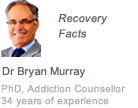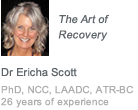Patterns of Alcohol Abuse
In theory, anyone is capable of succumbing to an alcohol addiction if their situation or some combination of personal circumstances causes them to resort to sustained and repeated alcohol abuse as a coping mechanism. So are there recognizable patterns of alcohol abuse that can be predicted and that might help an alcohol abuser to address their illness and find alternative ways of dealing with the issues that cause them to drink excessively?
Identifying patterns of alcohol abuse
Failing to recognize patterns of alcohol abuse and address the underlying problems that cause excessive drinking leave the sufferer open to the harmful long-term psychological and physical damage that alcoholism causes. There are two patterns of alcohol abuse which are commonly observed in drinkers of all ages and backgrounds. These are:
- Binge drinking
Binge drinkers do not necessarily follow a time pattern. Some, and particularly younger drinkers such as college students, may binge drink once a week every week. Others may binge drink once and then not again for some months. However, the binge drinker’s motives for drinking and attitudes towards alcohol are likely to remain constant irrespective of how often they indulge. Binge drinkers drink to get drunk by consuming an excessive amount of alcohol within a particular timeframe. A drinking binge may last for anything from a number of hours to two or three days. Binge drinkers may suffer from blackouts and, besides the dangers of inflicting long-term damage on their health they are also particularly at risk from death by alcohol poisoning. - Heavy drinking
Heavy (or ‘steady’) drinkers have regular patterns of alcohol abuse. They are likely to drink to excess most days of the week, or even every day. They may drink alone, or take pains to conceal their drinking habits. The steady drinker is liable to become frustrated or aggressive if their drinking ritual is interrupted. Heavy drinkers are less likely to be motivated by the social aspects of drinking and more by its mood-altering effects and the temporary escape from reality that it provides. Typically, heavy drinkers will deny that their drinking habits are a problem or are excessive. In addition to the health risks posed by regular drinking, heavy drinkers risk alienating the people closest to them in order to pursue their habit, and losing any employment as a result of impaired performance at their duties.
Drinkers who exhibit signs of following either of these patterns of alcohol abuse may be unaware that they are in the preliminary stages of a psychological illness: that of alcohol addiction. As such, binge drinkers or heavy drinkers need help for their illness and should not be stigmatized or shunned.
How patterns of alcohol abuse affect social behavior
In 2000, the Office of Applied Studies conducted research into the connections between patterns of alcohol use and behavioral and emotional problems in American teenagers. The study examined four patterns of alcohol use and abuse: heavy drinking, binge drinking, light drinking and abstinence from alcohol. The study (Patterns of Alcohol Use Among Adolescents and Associations with Emotional and Behavioral Problems, Greenblatt J.C., OAS, 2000), found that:
- Of the total number of 17-year-olds questioned who had used alcohol in the last month, approximately half admitted to heavy drinking or binge drinking.
- Around 50% of the heavy drinkers and 40% of the binge drinkers had also used illegal drugs (marijuana or solvents)
- They (the heavy and binge drinkers) were twice as likely to have thought about suicide as the light drinkers or abstainers.
- Heavy drinkers were the most likely to have been arrested or cautioned for committing a criminal act (typical crimes included causing damage to property, shoplifting and fighting)
- Heavy and binge drinkers were the most likely to have admitted to driving while under the influence of alcohol.
- Almost one third of the heavy drinkers who participated in the study were female
Getting help to break patterns of alcohol abuse
When our habits follow a pattern it is easy to become accustomed to them. When that pattern reinforces or facilitates a damaging habit such as alcohol abuse that may evolve into a full scale addiction, the pattern needs to be interrupted or altered before long-term damage becomes irreversible.
The key to breaking patterns of alcohol abuse is the acknowledgement and acceptance that the problem exists and that something must be done about it. To change or break a pattern of behavior with which we are so familiar and comfortable, despite the knowledge that it may be causing harm to ourselves and the people closest to us, is a difficult task. But it is not impossible.
Individuals neither need nor deserve to be caught in an unending pattern of alcohol abuse. If someone can find the strength and courage to admit that they have an alcohol problem and make a commitment to end that problem, then help is waiting.
There is a network of dedicated and supportive professionals, who are available to help anyone with a problem get free from the destructive patterns of alcohol abuse, equip the individual with the knowledge and skills required to cope with or avoid the circumstances that turned them to alcohol, and set them on the road to a better life.
Rehab Centers are best-placed to assist an alcohol abuser begin the process of getting sober, provide appropriate physical and emotional support and ensure that a continuing support network is available when someone is ready to leave the center.
Holistic treatment addresses much more than the symptoms of addiction or alcohol abuse – working with each individual to discover and deal with underlying pressures and problems, helping others to see the person and not the problem so that recovery is more effectively sustained.
If you, or someone close to you, follow regular patterns of alcohol abuse that ultimately lead to distress or feelings of guilt, you should seek professional help. An alcohol habit is not a reason for shame or secrecy; it is a personal way of dealing with the challenges that life has presented.












